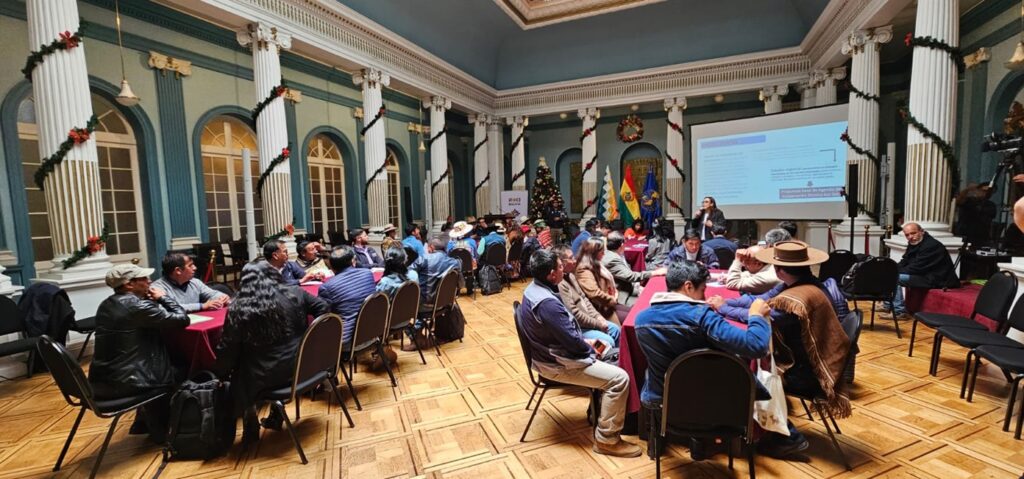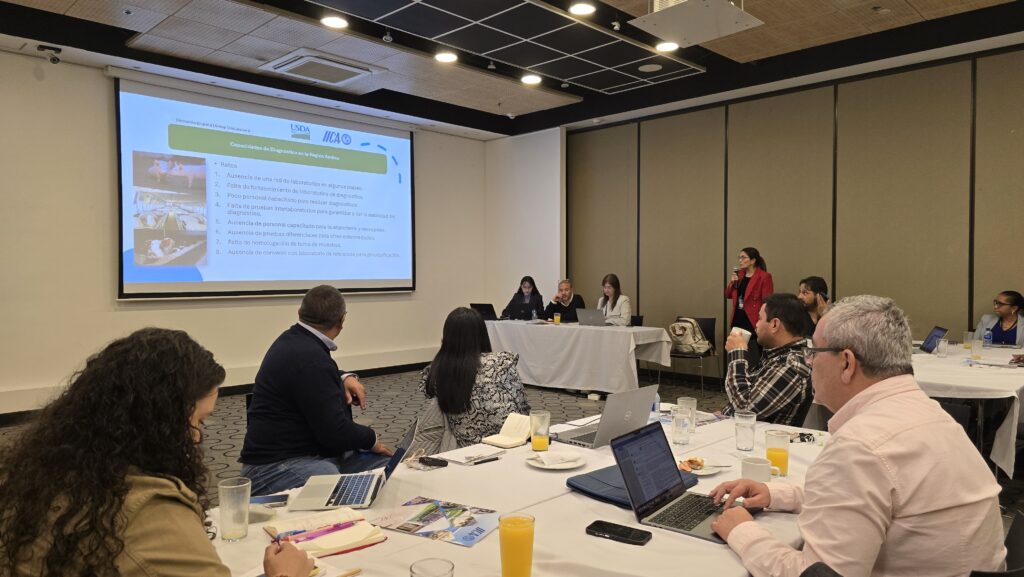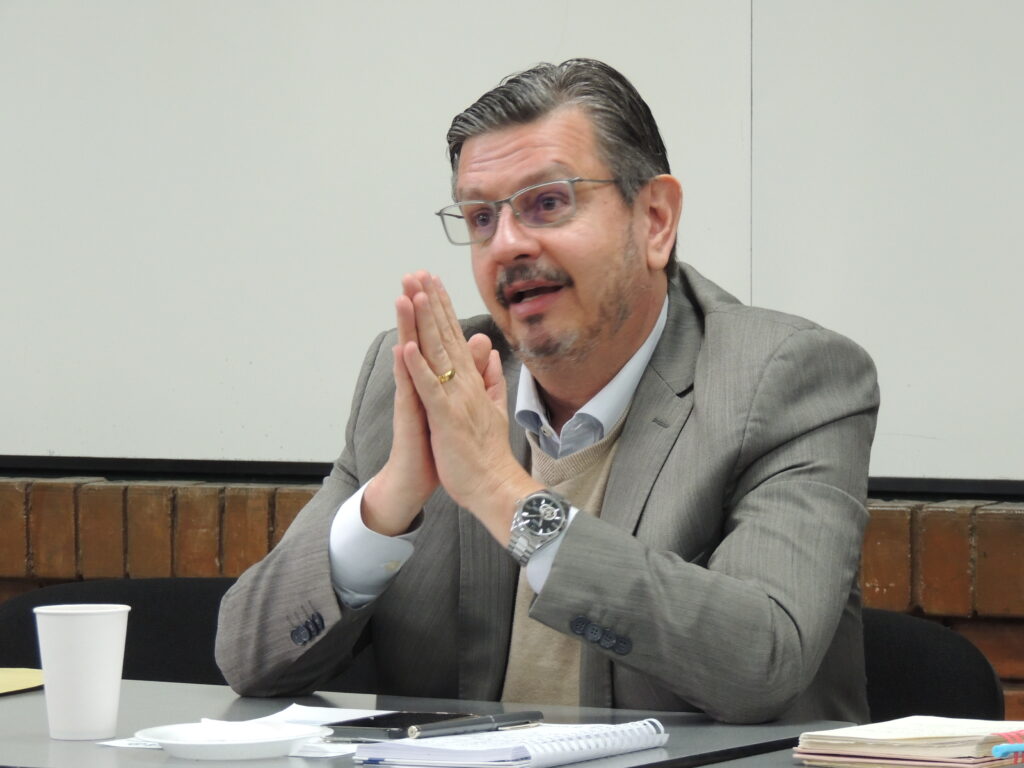La piedra fundacional fue colocada por ministros costarricenses y el alcalde del cantón de Vázquez de Coronado. Será un espacio público de exaltación de la biodiversidad, el manejo responsable de los recursos naturales, el potencial transformador de la agricultura y de la contribución de los habitantes de la ruralidad al desarrollo sostenible.
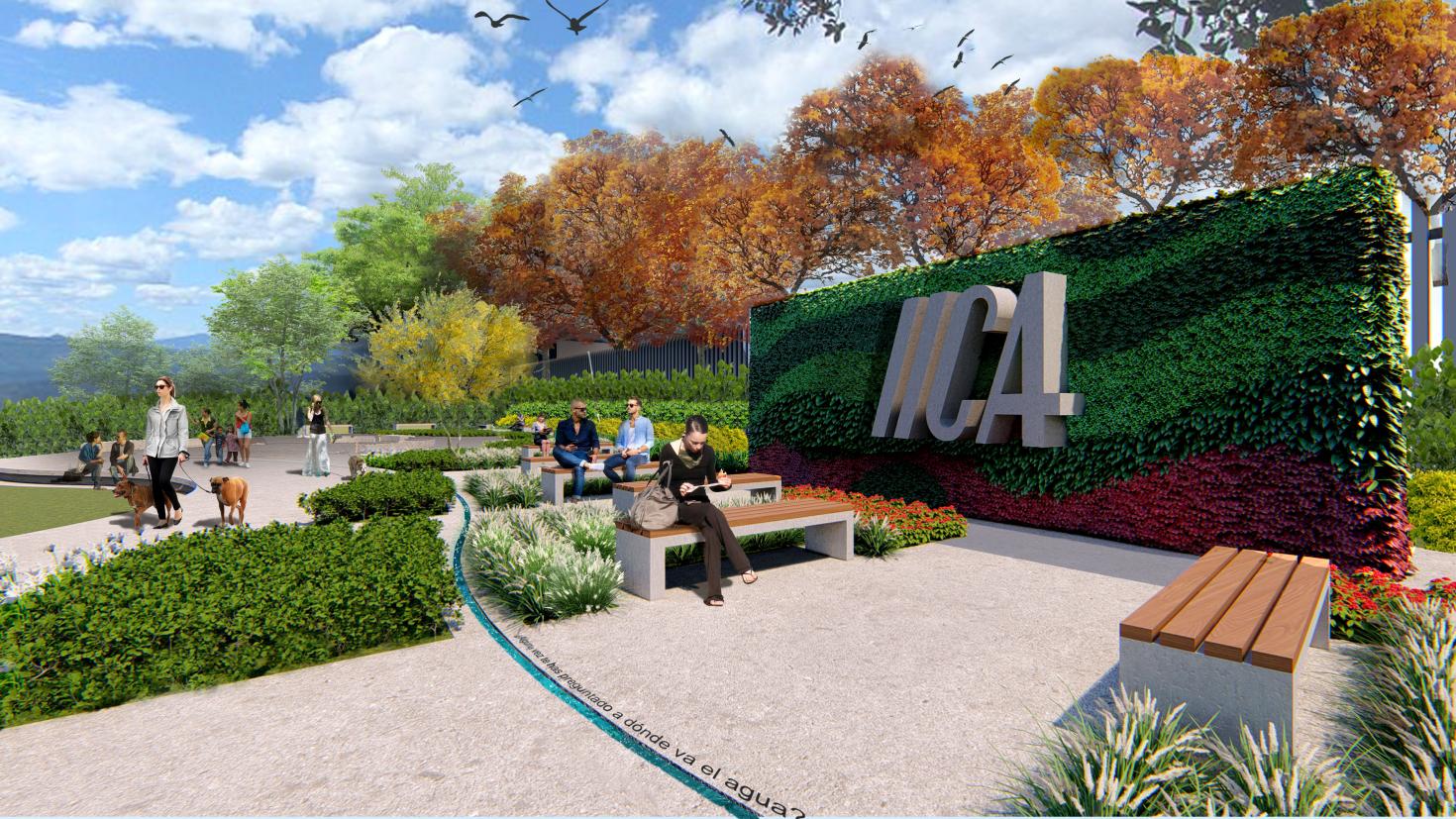
San José, 8 de octubre, 2021 (IICA). San José, la capital de Costa Rica, sede central del Instituto Interamericano de Cooperación para la Agricultura (IICA), tendrá un nuevo espacio público en un ámbito urbano, en el que se exaltará el valor de la biodiversidad, el manejo responsable de los recursos naturales, el potencial transformador de la agricultura y la contribución de los habitantes de la ruralidad al desarrollo sostenible.
La nueva Plaza de la Agricultura de las Américas contigua a la sede central del IICA y su piedra fundacional fue colocada por el Director General del Instituto, Manuel Otero, junto al canciller costarricense, Rodolfo Solano, el ministro de Agricultura, Renato Alvarado, y el alcalde del municipio de Vázquez de Coronado, Rolando Méndez, con la presencia de embajadores de latinoamericanos y caribeños acreditados en el país.
La puesta en marcha de esta iniciativa se dio en el marco de la celebración del 79 aniversario del IICA, profundizando la denominada iniciativa “IICA de puertas abiertas”, cimiento de una profunda transformación institucional del organismo especializado en desarrollo agropecuario y rural del Sistema Interamericano
.
“La futura plaza será el símbolo de un IICA abierto y ligado a la comunidad, que refleje apropiadamente el valor del trabajo campesino, que la sociedad en general tenga una mayor vinculación con el sector agrícola, más que necesaria, que resulte finalmente en la conciencia de que los frutos de la tierra no surgen de manera espontánea en los supermercados. Detrás de estos frutos hay agricultores, mujeres y hombres, jóvenes, todo un sector que desde siempre y aún en los más difíciles momentos han seguido trabajando incansablemente para que continuemos teniendo acceso a alimentos”, destacó el canciller Solano en la ceremonia.
La plaza se unirá al Centro de Interpretación del Mañana de la Agricultura (CIMAG), el Fab Lab- laboratorio de innovación agropecuaria-, la Casa Típica Rural que evoca las tradiciones rurales de nuestro continente, el bosque de las Américas, el mural de agricultura y arte urbano, y el museo de arte virtual AgroArt, que el organismo hemisférico puso en operación en los últimos meses.
“Las puertas del IICA están cada vez más abiertas, interactuando con la comunidad, porque este IICA trabaja con todos los actores. La plaza una expresión de la biodiversidad como aspecto fundamental en nuestras vidas, en ella van a encontrar una simbología en el tema del agua, un recurso fundamental para el futuro de nuestro planeta, y fundamentalmente el mensaje de que la agricultura es un eje estratégico para el desarrollo sostenible de nuestro planeta. Es la agricultura, es su gente, sus zonas rurales las que van a definir el desarrollo sostenible de nuestro planeta”, dijo en el acto Manuel Otero.
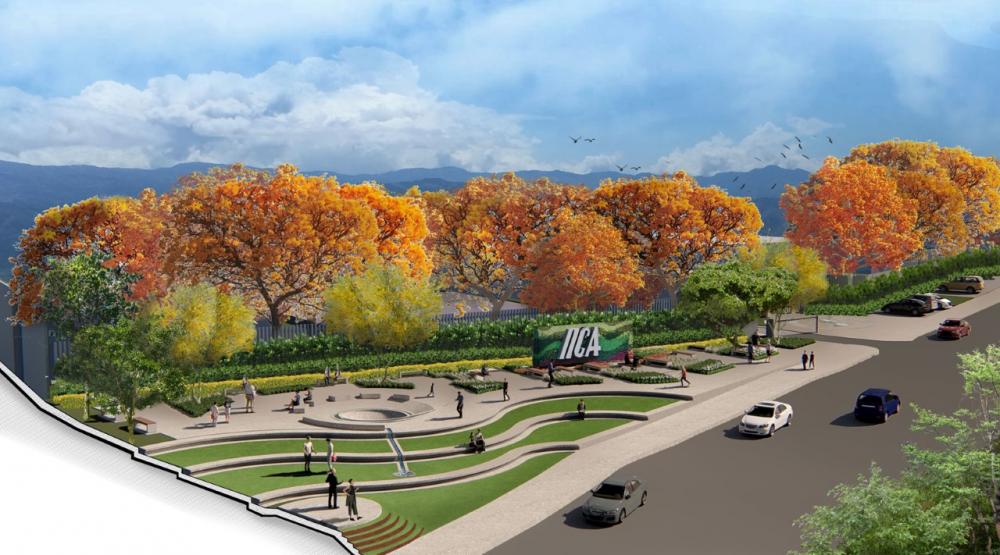
El titular de la cartera de Agricultura de Costa Rica remarcó por su parte la labor y dedicación del IICA para “ubicar nuevamente al agro en el lugar que se merece” e instó a erradicar la errónea visión que hay sobre el sector agrícola, “visto con un problema y no como una solución, un mecanismo de desarrollo de nuestras económicas”.
“La sociedad tiene su origen en la agricultura, seguiremos necesitando de la comida para podernos alimentar y solo a través de la agricultura, de nuestros agricultores y agricultoras, podremos seguir alimentando a la humanidad”, dijo Alvarado.
El Alcalde del municipio de Vázquez de Coronado, en tanto, indicó que “todos los coronadeños nos vamos a sentir muy orgullosos de que esta plaza se establezca en lo que antes ha sido una cerca, una verja limítrofe, y que hoy será un espacio de encuentro, de reunión de la comunidad, de quienes visitan al cantón y al IICA, un espacio de convivio público donde el eje principal es rememorar la importancia de la agricultura como fuente fundamental de alimentación para la población”.
La plaza estará integrada por espacios de parque y jardines, y tendrá una superficie de 455 metros cuadrados donde podrán estar más de 230 personas rodeadas de zonas verdes. También habrá un sendero de agua de 75 metros lineales, representativo de una cuenca.
Contará además con camas de plantación representativas de las diferentes situaciones topográficas de las Américas, con diseños de fincas rectangulares, planas y ordenadas, curvas y en terrazas. La vegetación también será representativa de los países.
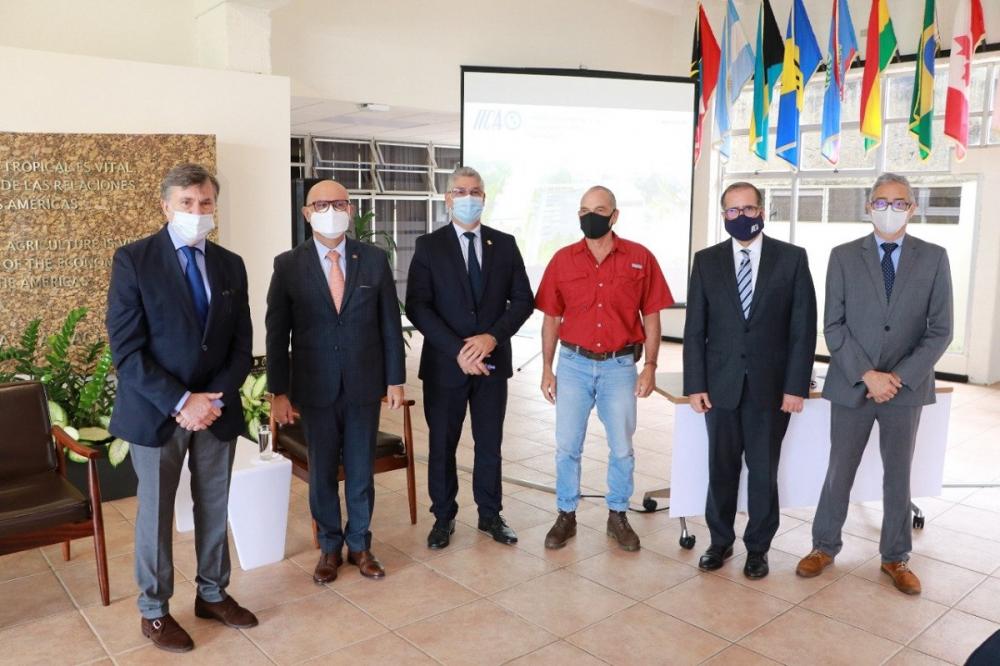
Más información:
Gerencia de Comunicación Institucional
comunicacion.institucional@iica.int
